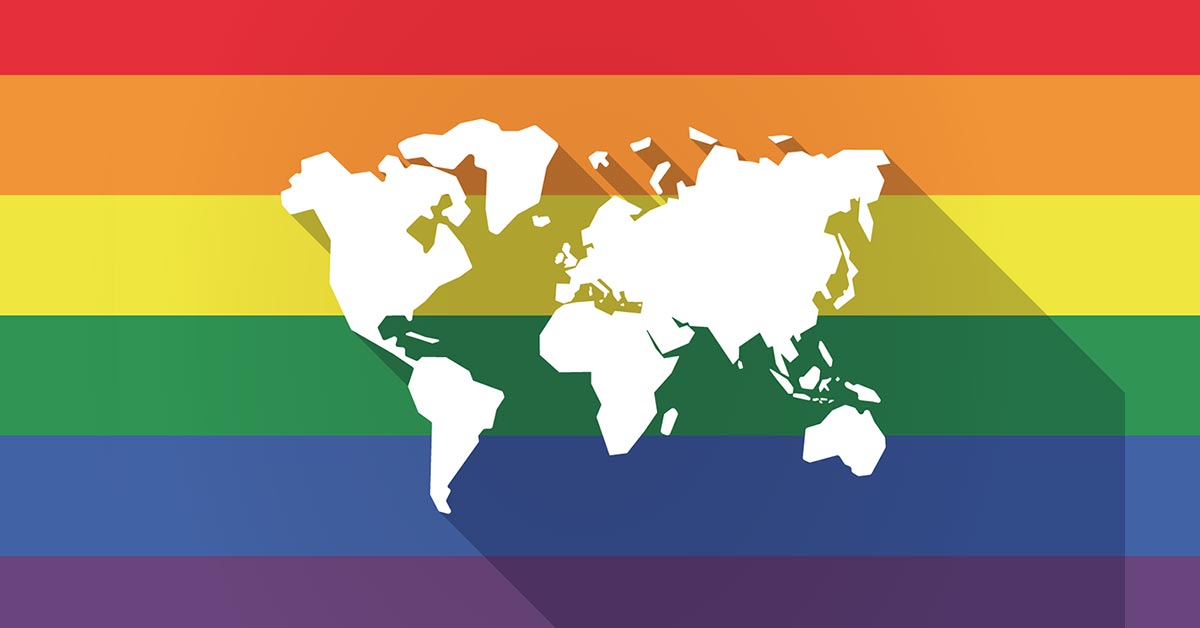Pride survey finds that 9% of adults in 30 countries identify as LGBT+

A survey conducted in 30 countries, including South Africa, has revealed that approximately 9% of these countries’ populations identify as LGBT+.
The results of the 2023 Ipsos poll, which involved 22,500 people under the age of 75, was released at the beginning of International Pride Month.
The research found that, on average, 9% of adults in the surveyed countries identify as part of the LGBT+ community (8% in South Africa). Among the respondents, 3% identified as lesbian or gay, 4% as bisexual, 1% as pansexual or omnisexual, and 1% as asexual.
Interestingly, Gen Zers are twice as likely as Millennials and four times as likely as Gen Xers and Boomers to identify as bisexual, pansexual/omnisexual, or asexual.
In terms of gender, men are more likely than women to identify as gay/lesbian/homosexual, while both genders are equally likely to identify as bisexual, pansexual/omnisexual, or asexual.
Regarding gender identity, approximately 1% of respondents globally described themselves as transgender, 1% as non-binary, gender non-conforming, or gender fluid, and 1% as identifying differently from male or female.
Significant differences were observed between younger and older adults when it comes to self-identifying with any of these categories. For instance, 6% of Gen Zers and 3% of Millennials identified with these categories, compared to only 1% of Gen Xers and Boomers.
Increased LGBT+ visibility, but variations across countries
The visibility of LGBT+ individuals has risen since the previous LGBT+ Pride survey conducted two years ago. On average, across the 30 countries surveyed this year:
- 47% of all adults reported having a relative, friend, or colleague who identifies as lesbian/gay/homosexual, a 5-point increase from 2021.
- 26% reported knowing someone who is bisexual, a 2-point increase.
- 13% reported knowing someone who is transgender, a 3-point increase.
- 12% reported knowing someone who is non-binary, gender non-conforming, or gender fluid, a 3-point increase.
Having a relative, friend, or colleague who identifies as lesbian/gay or bisexual is most commonly reported in Latin America, Spain, Australia, New Zealand, and South Africa. Gender diversity is most visible throughout the Anglosphere, Brazil, and particularly Thailand.
On the other hand, the visibility of different segments of the LGBT+ community is lowest in Japan, South Korea, Turkey, Romania, Hungary, and Poland. The prevalence of knowing someone who identifies as LGBT+ is much higher among younger adults than among older adults.
Majority support for same-sex marriage and parenting in most countries
In South Africa, 57% of respondents expressed support for equal marriage, while 10% supported same-sex civil unions but not marriage. Nineteen percent believed that same-sex couples should not be allowed to marry or have any kind of legal recognition.
Seventy percent of South Africans agreed that same-sex couples should have the right to adopt children, while 8% were unsure, and 22% strongly opposed it.
The majority, 67% of respondents (70% of South Africans) believed that transgender people face at least a fair amount of discrimination, compared to 19% who believed they face little or no discrimination.
Majorities in each of the 30 countries surveyed (76% on average) also agree that transgender people should be protected from discrimination in employment, housing, and access to businesses such as restaurants and stores.
This support drops when it comes to transgender people using bathroom facilities corresponding to their gender identity (55%) and only 47% agree that health insurance should cover the costs of gender transition like other medical procedures. Sixty percent believe that transgender teenagers should be allowed to receive gender-affirming care with parental consent.
While the overall findings of the survey indicate a generally positive stance towards LGBT+ rights, it is important to acknowledge that the countries surveyed only included one African country (South Africa) and one in the Middle East (Turkey) – regions that are typically associated with anti-LGBT+ legislation and sentiment.
The researchers also noted that in certain countries, including South Africa, the participants surveyed may represent a more urban, educated, and/or affluent group compared to the broader population.
Leave a Reply